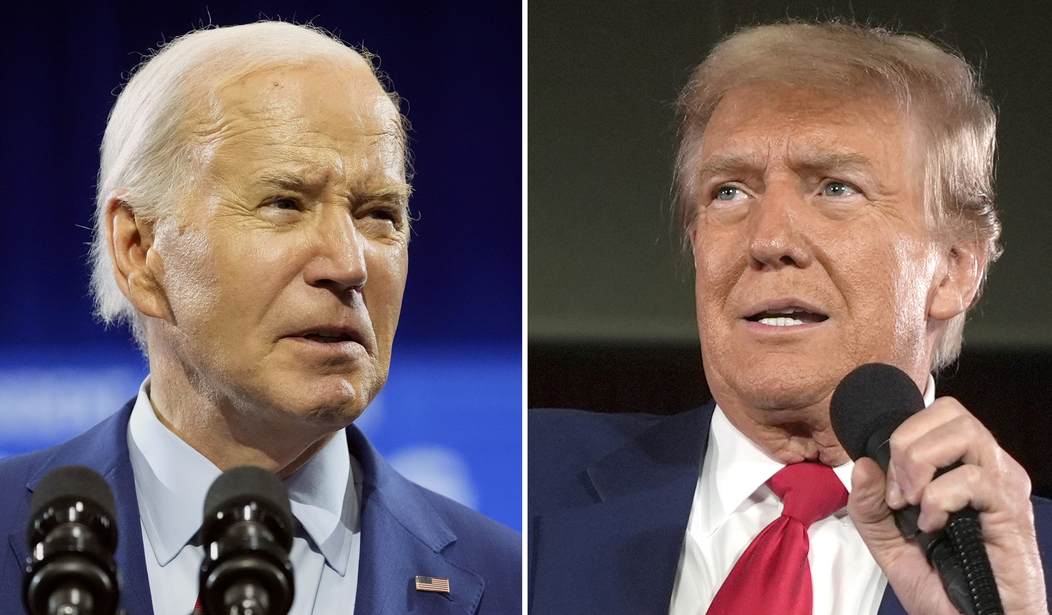The short answer to the question posed in my headline is, probably not. Virginia has shifted leftward over recent decades, as Democrats have carried the Old Dominion in every presidential election since 2004's Bush victory. Obama won Virginia twice -- each time by low single-digits -- then Hillary Clinton did the same in 2016, prevailing by just over five percentage points. Four years later, Joe Biden nearly doubled Clinton's margin, beating Donald Trump by ten points. With progressive northern Virginia ballooning in population and influence, the Commonwealth seems to be moving further away from Republicans, even as an opposite, red-tinted phenomenon is playing out in some other states. It's true that Gov. Glenn Youngkin's GOP ticket swept three statewide elections in 2021. Youngkin ran a flawless campaign, more or less, exploiting significant mistakes by his opponent and capitalizing on a backlash against the newly-elected Biden across the Potomac.
He won by two points in a high-turnout contest, for a non-presidential year. Sure, Youngkin has proven to be broadly popular among Virginians, but that popularity didn't translate into Republican gains in the state's 2023 'midterm'-style legislative elections. In fact, they lost a handful of House seats, and therefore their slim majority, while gaining a single state Senate seat. All of which is to say, Virginia is a blue-tinted purple state in which Republicans can still win under near-ideal circumstances -- but it's an uphill climb. The aforementioned Bush win two decades ago is the last statewide federal election in which any Republican emerged victorious, though there was a surprisingly close Senate election in 2014, which nearly knocked off Democratic incumbent Mark Warner. But could an upset be brewing this year? Two new polls suggest that it's at least possible. One is an internal from the Trump campaign, so approach it with due skepticism:
Trump camp poll memo: Blue states MN & VA are in play
— Marc Caputo (@MarcACaputo) May 7, 2024
MN: Trump & Biden are tied 40-40%
Sans RFK Jr: Trump +5
Head to head: Trump + 3
VA: Biden up 40-37%
Sans RFK: Biden +1
H2H: Biden +4 pic.twitter.com/rZYw5twBpQ
But this one comes from a credible, bipartisan pollster. Same margin:
#NEW General Election Poll - Virginia
— Political Polls (@PpollingNumbers) May 13, 2024
🔵 Biden 43% (+1)
🔴 Trump 42%
2020: Biden won Virginia with 10.2%
Fabrizio (🔴) Impact research (🔵) - 500 RV - 4/28
Some reasonable analysis from a veteran GOP operative:
now admittedly i'd look at NH, MN, and probably NM before I looked at VA, but every state has its local flavor
— Logan Dobson (@LoganDobson) May 13, 2024
I'll put it this way: If Virginia ends up being even fairly competitive this fall, Trump will likely win the presidency, quite possibly with relative ease. Meanwhile, another mostly-blue state (also not won by any GOP presidential ticket since 2004) does appear to be trending Trump's way this cycle. The new polling we discussed yesterday from the New York Times shows Trump ahead by 13 points among likely voters in Nevada. That's admittedly an outlier margin in the Silver State, but the RealClearPolitics polling average currently shows the challenger leading the incumbent by just over six points. Granted, Nevada has been a tantalizingly close source of frustration for Republicans for several cycles, in which they almost always fall short. GOP Senate candidate Adam Laxalt was ahead by three-plus points in the polling average in 2022 but ended up losing to the incumbent Democrat by less than a point. The Republican gubernatorial candidate ended up winning, but by roughly half of the expected margin, based on that polling average.
Recommended
Might things be shaking out more favorably for the party this year? Republicans have been closing the voter registration gap over recent years, and longtime left-leaning Nevada political analyst Jon Ralston sees dark clouds gathering on the horizon for Democrats:
My thoughts on the NYT/Siena poll w/Trump up double digits in Nevada:
— Jon Ralston (@RalstonReports) May 13, 2024
This is a very bad poll for Biden. But I think it's also terrible for Jacky Rosen and Dem House incumbents.
Not a huge fan of most NV polls, and this one has anomalies, but Biden is losing here.
Details: pic.twitter.com/yAmtgwMHlM
Of course, as Byron York laid out this week, Trump could (a) sweep the states in which he's winning outside the margin of error in the NYT/Siena polling (GA, AZ, NV), then (b) again win all of his 2020 states (including places where the Biden campaign seems to be trying to expand its map, like NC and FL), and would (c) still be just short of the electoral college votes required to capture the presidency. Once again, three midwestern states (MI, PA, WI) loom very large. I'll leave you with this, measuring sentiments that would make a Trump win look obvious, in retrospect -- though the public was similarly dissatisfied in 2022, yet those feelings failed to materialize into decisive Republican victories:
Financial Times poll: Biden economic approval remains weak pic.twitter.com/WqlIms3kS8
— Guy Benson (@guypbenson) May 13, 2024
























